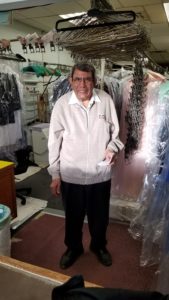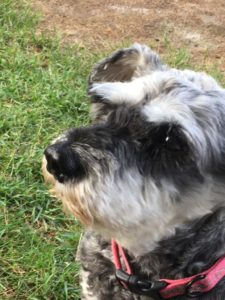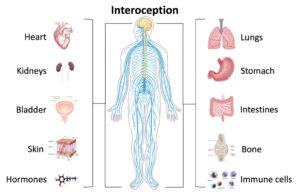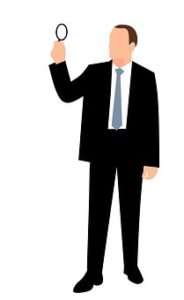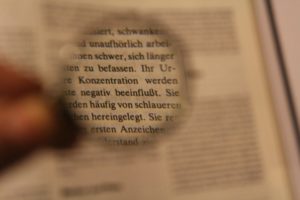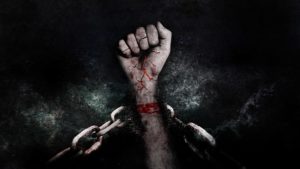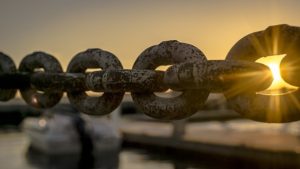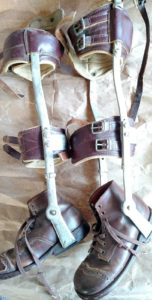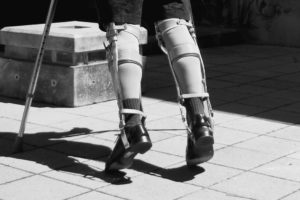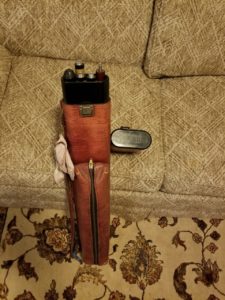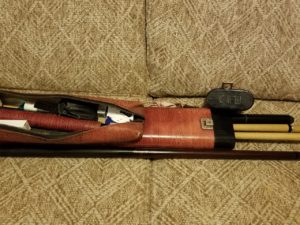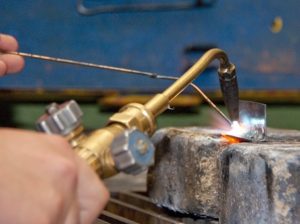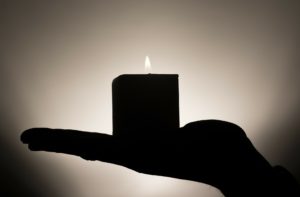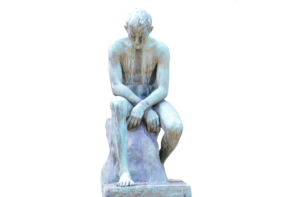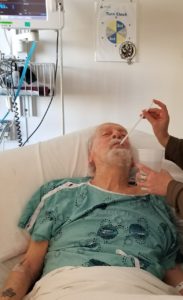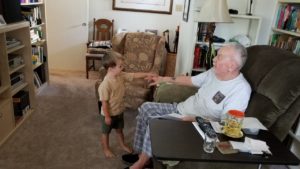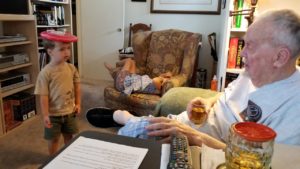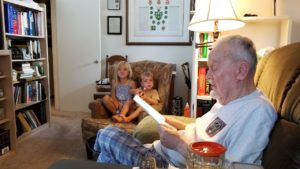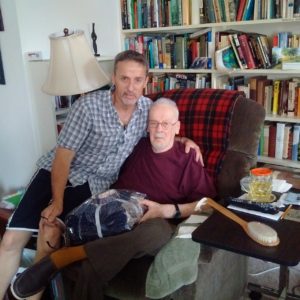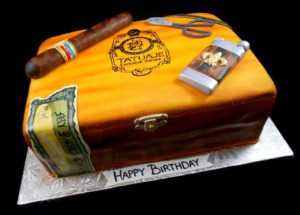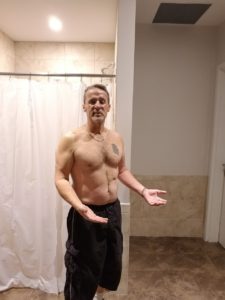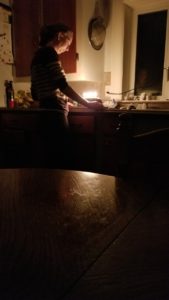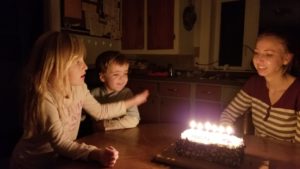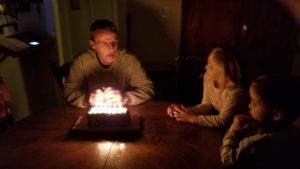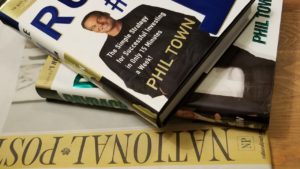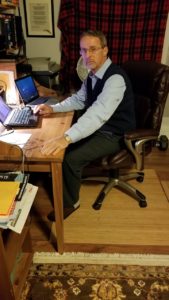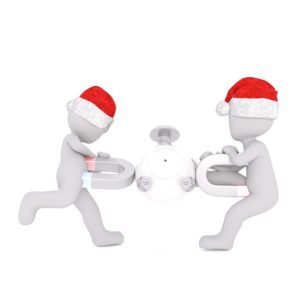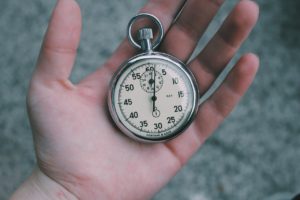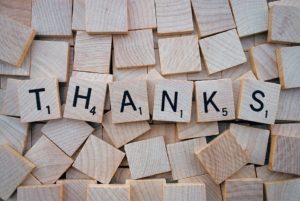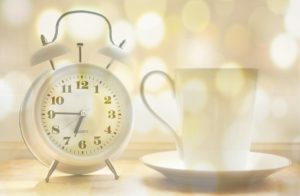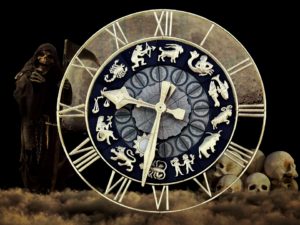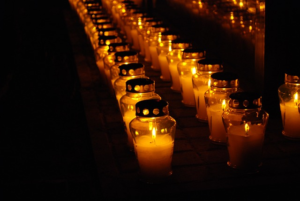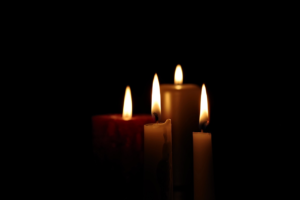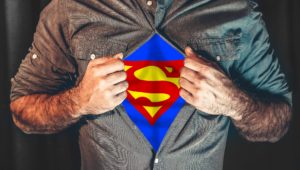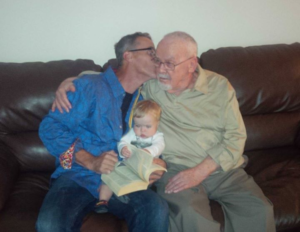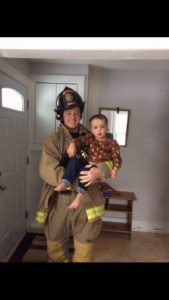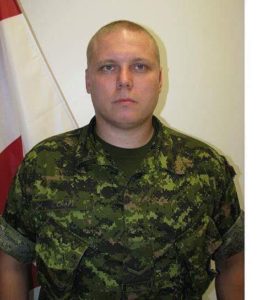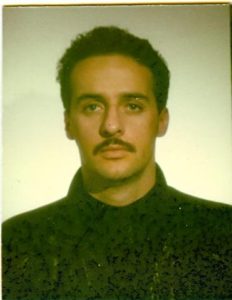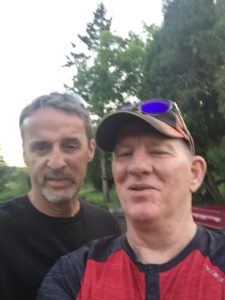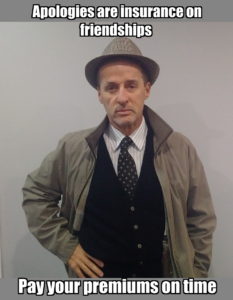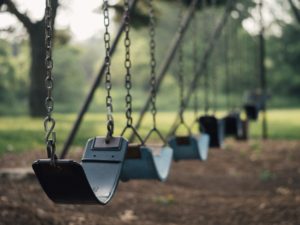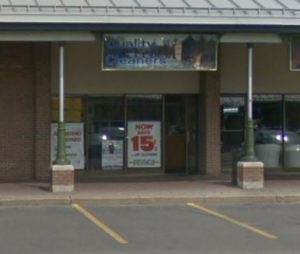
The old man sat down on a tiny stool he kept a bit back from the dry cleaner’s counter where he served his customers. He thought for a moment about how many years it had been since he hung up his sign, Quality Cleaners. That was back when the plaza was first built in tiny Manotick, Ontario, a satellite village just south of Ottawa on the banks of the Rideau River.
It had been a small community of horse lovers, and cattle and cash crop farmers, and even had an operating mill well into the 20th century. It was for these people, still now numbering only a few thousand, and a few others who didn’t mind the commute from the inner city for the chance to breathe fresh air in wide open spaces, that the village had survived.
However, in the last decade and a half, like many of the places around larger cities in North America, little Manotick had new subdivisions nipping at its periphery. It even had a gentrified core which made it look a little trendy.
This was good for dry cleaners, he thought. Maybe the extra volume of people will help offset the trend that saw less folks getting their clothing dry cleaned regularly. It had become expensive, no doubt. He liked to say he paid all his bills in dollars but only collected nickels and dimes in return.
At 73 years old, he remembered proudly he will have been married to the same women for 54 of those years on a Sunday soon. This brought a slight smile to his face as he remembered her, then and now. More than half a century and going, praise the heavens, he thought.
A customer pushed open the door. It was mid-afternoon on a weekday and so, he wasn’t very busy. In fact, he hadn’t had anyone in in over an hour. It wasn’t a regular, but he recognized the person as someone who had been there before.
Turns out the man lived a few miles east on acreage and couldn’t find a dry cleaner close enough to his house and so had come here. Happy to get his business, they struck up a conversation.
Soon, each reminisced about how long they’d been coming to Manotick. The man had grown up in the south end of Ottawa when the village was a forgotten outpost except to those who lived there. Comparing notes, each remarked how it had somehow survived and was now being developed.
“The new Vimy Memorial Bridge is a marvel,” said the man. “Yes, they finally got it built,” replied the shopkeeper. “I remember when we used to rent a property with 3 cottages on it just a few yards from where it crosses the river,” said the man, “boy oh boy, has this place changed. When I was a kid, there couldn’t have been but a few hundred souls out this way.”
Soon they were engrossed in comparing notes about what came first, which area developed best, and where it was headed.
He liked this stranger, but then again, he liked all his customers. It’s not just that he wanted them to spend money here, it was just part of his nature. After all, you can’t devote as many years as he had serving a community in dry cleaning, of all things, and not like what you’re doing.
He told the stranger about opening his tiny little shop, mentioning he’d come to Canada as a much younger man from Uganda. “Oh, Uganda, I get it!” said the man. “Idi Amin really left that place a mess.”
Agreeing with him, he counted how long since then. It had been 34 years of service to this small community, and his mind was immediately littered with events and faces as he felt all that time go by.
“I commend your commitment to your town,” said the man. “There is something about serving other people that gives a man’s life meaning,” he said.
“Yes!” said the shopkeeper, “that’s exactly how I feel about it.”
Soon they were exchanging testimony about helping their fellow man. Not at all in a way to stroke egos, no. More in a matter of fact way, as if they were reassuring each other this was how it’s done.
“I will tell you something,” said the shopkeeper after a while to his customer. “You know, last month, I went for a chest scan.”
“Oh really?” said the man, his voice concerned.
“Yes, they told me something was wrong, very wrong. It was a rare case and I was going to need experimental medications costing 25,000 dollars. Can you imagine? I’m not a rich man,” he said.

He remembered how devastating his wife of more than fifty years was at hearing the news. He remembered her face, her pain, her worry, and he winced at the memory.
“OHIP wouldn’t cover it. Too experimental, they said. So, I got on the phone with the pharmaceutical company. They agreed to provide the medications for free through a local pharmacy. Only, there’d be a $912 fee to dispense the medications here in Ottawa. We talked some more and soon, they agreed to waive this fee as well. I felt very fortunate.”
“Wow, nice going,” said the customer, listening intently. “Let me get this straight: you not only got the pharmaceutical company to cover the cost of the experimental drugs, but you also got them to waive the local dispensing fee. Almost a grand?”
“Yes, that’s what happened,” said the old man. “And then, I got a referral to a top thoracic surgeon in Toronto that same morning. Only, I couldn’t get there with my health. There was a waiting list too. So, we did a teleconference at the medical centre by Billings Bridge. You know where that is?”
“Yes, I do exactly,” said the man, “I’ve had conferences with Toronto doctors myself from those same offices about my liver.”
“You know, then,” said the shopkeeper, “these doctors are busy.”
“Get this,” continued the shopkeeper, “I get on the video conference with the thoracic surgeon in Toronto and he says he knows me. “What do you mean?” I asked him. He says, “I remember having dinner at your home more than 30 years ago and afterwards, doing the dishes.””

Turns out when the shopkeeper was a much younger man, part of his service to his mosque was to mentor young people, especially new immigrants to Canada. He and his wife often hosted a dinner Saturdays at home and counselled arrivals about settling into their new country.
It was a way to help people transition, to provide a like-minded person of faith as a contact in the community, and to impart sound values to the newcomer. The surgeon, then a student, was one of them, and he remembered him well. The shopkeeper told the stranger about how his students at one point wanted to host a dinner for him in thanks and he refused the accolade on principle. He told them it was his natural duty to help them all, and they should focus on doing the same for others in the future.
“You can imagine my surprise,” said the shopkeeper. “I wasn’t sure what this meant but during the call, the doctor told me, “Either your heart is trying to divorce your lungs, or your lungs are trying to divorce your heart. You will need a transplant.” He would put me on a list, he said.”
“The Toronto surgeon says the transplant will have to happen in Ottawa where it just so happens he has a friend at the Heart Institute, because my health is too frail and makes the trip too risky,” recounts the shopkeeper, “You can imagine how worried my wife was.”
“I can’t even grasp how difficult that must have been for her. How long have you been married?” asked the stranger.
“It will be 54 years next Sunday,” he replied.
“Bless you both my friend. So, what happened next?” enjoined the stranger.
“Right away,” he continued, “The Heart Institute here in Ottawa called me and said I had to be there in one hour to see the doctor. You know where that is?”
“No, but I can imagine we have good people here. I know the first Canadian heart transplant was done at the Civic. Is that where you went?”
“Yes, it’s right beside there now. It was another surprise,” he replied.

“How do you mean?” asked the stranger.
“So, I get to the Heart Institute,” he continued, “and I am by myself. There is a line-up to get into the parking, about six cars ahead of me and time is ticking by. A young guy comes to my window and asked for me by name. He said the doctor sent him and he took my keys and told me he would take care of my car, and to go in immediately to see the doctor. He went off to park my car and off I went to see the doctor.”
“And so, you went in?” asked the stranger.
“I did go in, and he sees me. First thing he did was sent me off to get another scan in 30 minutes on an emergency basis. Then, he wants me to go home and prepare to be admitted any moment because they had a good candidate with viable lungs dying within the next 24 hours.”
“Wow, all this on the same damn day! It’s no wonder your heart didn’t give out!”
“I’m not finished,” the shopkeeper continued, “you won’t believe what happens next.”
“Uh-oh,” says the stranger.
“I get lost on my way to the MRI room. Can you believe it? I miss my test!” he exclaims.
“Oh no!” says the stranger.
“You know how big and confusing these hospitals are. I get there and I’m about 30 minutes late. The waiting room is full of people, some of them look sick, much sicker than I felt for sure. I went up to the lady at the desk and apologised for being late. Turns out she was a long-time customer of mine here at the dry cleaners. She tells me not to worry and puts me to the head of the line and I get my MRI!”
“Wow again!” remarks the stranger. “I hesitate to call this luck in the circumstances, but so far so good!”
“Yes, I was overwhelmed but I did notice it. You know, I thought this is how one should die. Like going away in a parade, everyone waving at you, but knowing they are being nice because you may be leaving,” he says solemnly.
“But, …,” replied the stranger, lost for words.
The shopkeeper continued, “Off I go home to pack a few things and explain all this to my wife. She is very worried. We’ve faced many challenges together, but this is the biggest. The mood at home is very sombre, very sad. A little while later, I get a phone call. It’s the first doctor, the one who made the original diagnosis, requiring me to be at his office first thing the next morning at 8:30 am.”
The shopkeeper explains how he spent the night in prayer, reassuring his wife, consoling her fears, and trying to get some rest but knowing at this point, it was out of his hands. Fed up, he determines to leave it up to greater powers than he. God-willing he would be alive the next day. He decides this is a test of his life-long faith… and he must not waiver.
But in his darkness he dared to have a secret wish: it was to make it to a few Sundays from then to celebrate his wedding anniversary with his bride one last time. He thinks to himself: we should be grateful for our 54 years together, whatever happens tomorrow. He pictures her face in his mind’s eye.
With that, he drifts off to a restless sleep, the anxieties of the day leaving him sapped of physical strength while his mind wished to remain awake and alert.
The next morning, he is at his doctor’s office on time. “You know what happened?” the good doctor asks, “you’re not going to believe me when I tell you.”
“I have no idea,” replied the shopkeeper as his mind raced with possibilities, none of them good.
“The doctor says, “I am very sorry, but I have made a mistake. You were misdiagnosed. I read someone else’s chart who was terminal and thought it was yours. It’s our fault. We have made a grave error, I hope you can forgive me,” his face filled with remorse.
“I was frozen in place, not believing my ears,” says the shopkeeper to the stranger.
“Oh my God,” says the stranger, “a mistake? That’s outrageous! The news alone could have killed you. He’s lucky he didn’t cause you to go into cardiac arrest from fright.”
“You know what I told him?” said the shopkeeper in a sly kind of voice.
“This I got to hear,” said the stranger.
“I said simply, “I forgive you, and thank you.””
“Wow, thank you? really?” replied the stranger, “Now I’m inspired. How did you come to that?”
The shopkeeper went on to say, “The doctor looked at me puzzled, mumbling something about how this was an unforgiveable error on his part and that he was ashamed of his office. He wouldn’t be surprised if I were angry and complained. Again, he said he was sorry.”
“I just smiled and repeated to him the same thing: “I forgive you… and thank you,”” said the shopkeeper, his voice now confident and relaxed, his eyes a little brighter, a beatific smile on his face.
Then, he told the doctor of his journey. “Did you know I was able to suggest the pharmaceutical company waive costs for their experimental medicine for humanitarian reasons and they did? That is an unusual arrangement, you’ll have to agree.” And the doctor agreed it was unusual. “And then they waved the local dispensing fee of almost one thousand dollars on top of it,” even more unlikely.” The doctor sat still.
“If it were not for you,” I told him, “I probably would never have been thanked for giving those Saturday suppers all those years, and to know one of my students was a top surgeon in Toronto,” explaining now how he knew his surgeon. “Wasn’t I glad I’d refused any accolades for doing this and thereby set an example to my charges? Look how this returned to me in my time of need,” he continued.
The doctor was fascinated by his good fortune, nodded and stared at him blankly.
“And doctor, how lucky was it that the surgeon in Toronto had a friend in Ottawa?” and, “did you know the Ottawa surgeon sent a parking attendant to park my car and usher me into his offices?”
“Yes, he’s a very well-known doctor, one of the best in the world,” answered the physician.
“And something else doctor, what are the chances, of all the people who work in a hospital imaging lab, one of them would turn out to be a long-time customer of mine. When I got lost and missed my appointment, with a double lung transplant operation a few hours away, it was she who made sure I got in despite others still waiting? Can we still call this luck?”
The stranger could only imagine what must have been a dumbfounded look on the doctor’s face.
“It was because of that appointment we are sitting here this morning, instead of at the hospital preparing for surgery,” the shopkeeper said matter-of-factly to his doctor.
The doctor agreed, adding the donor candidate will die that morning and his lungs will go to someone else who is already waiting for them in that very moment.
“Doctor let me again say, if were not for you, if it were not for your misdiagnosis, I would not have found out about all the wonderful people around me. What is the price of such a thing? Can you tell me? All these various people from different areas came together somehow to show me kindness and respect, and I owe all of this to you. It is me who needs to thank you now.”
The doctor, tears in his eyes, blinked at the remarkable man before him and thanked him.
“And that was it,” said the shopkeeper.
“That’s quite a story my good man, mind if I write this one up?” asked the stranger.
To which the shopkeeper replied, “Oh sure, please do. Just remember we are all brothers and sisters.”
“You bet, I will never forget today. Do you have any more advice for me?” asked the stranger.
“Yes, I do,” replied the shopkeeper. “I will tell you this: Even the homeless on the street, don’t pass them by. You don’t have to give them money if you don’t want to but you should always look them in the eye and say hello at least.”
And the stranger was not at all surprised by this last bit of wisdom.
“Do you need these shirts by Friday or can you wait until Tuesday?” asked the shopkeeper.
“Tuesday is fine,”replied the stranger.
Christopher K Wallace
Advisor to Men
©2018, all rights reserved.
https://www.facebook.com/groups/advisortomen/
Hassan Ismail, shopkeeper
